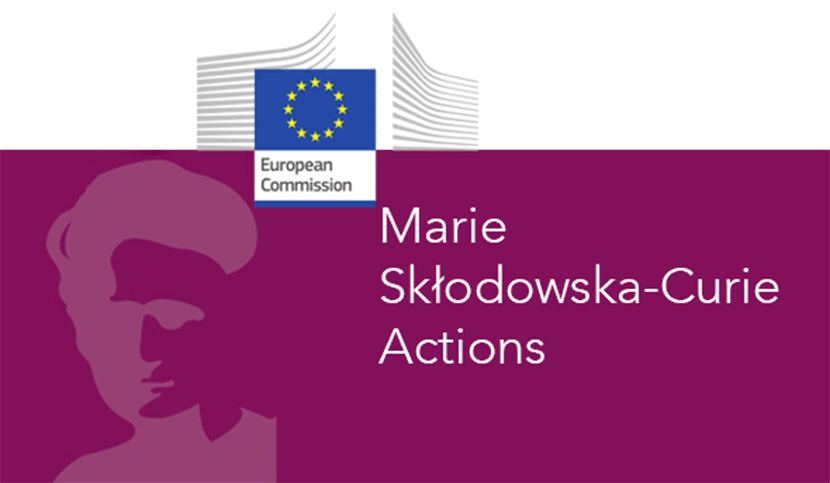The 2024 call for the Marie Skłodowska-Curie Actions Doctoral Networks (MSCA) under Horizon Europe, the EU’s key funding programme for research and innovation, is open for submissions with a deadline to apply by 27 November 2024.
This call will dedicate €608.6 million to fund over 160 projects in all scientific fields and the training and skills development of 2,400 doctoral candidates.
Objective of Doctoral Networks
The Doctoral Networks initiative offers a unique opportunity for aspiring researchers to engage in cutting-edge doctoral programs through international partnerships that bring together universities, research institutions, research infrastructures, businesses, including SMEs, and socio-economic actors across Europe and beyond. By fostering collaboration across these diverse sectors, Doctoral Networks aim to develop a new generation of highly skilled PhD candidates, enhancing their creativity, boosting innovation capacities, and improving long-term employability.
These doctoral programs are designed to meet well-identified needs in various research and innovation (R&I) areas. They provide participants with a comprehensive training experience that includes not only research skills but also transferable competencies essential for innovation. Training in areas such as entrepreneurship, commercialization of results, Intellectual Property Rights (IPR), and communication ensures that candidates are well-prepared for careers both inside and outside academia.
Doctoral Networks are also open to participation from third countries, encouraging the formation of strategic international partnerships for the training and exchange of researchers. Proposals can build on existing or planned research collaborations between organizations, making these programs a highly flexible and adaptable platform for innovation.
Cross-Sector Collaboration and Specialized Doctorates
A hallmark of Doctoral Networks is their focus on cross-sector collaboration. By integrating research with real-world applications, these programs expose PhD candidates to both academic and non-academic sectors, creating a rich, interdisciplinary learning environment. This collaborative structure allows candidates to develop solutions that are both innovative and practical, addressing pressing global challenges while gaining hands-on experience in multiple fields.
Besides standard Doctoral Networks, incentives have been introduced to promote two specific types of doctorates as well.
- Industrial Doctorates: They train PhD candidates who wish develop their skills and step outside academia, in particular in industry and business. Individual participants must be enrolled in a doctoral programme and jointly supervised by the academic and non-academic partners.
- Joint Doctorates: They provide a highly integrated type of international, inter-sectoral and interdisciplinary collaboration in doctoral training leading to a joint doctoral degree or multiple doctoral degrees awarded by the participating institutions. PhD candidates must be enrolled in a joint programme and be jointly supervised.
Who Can Apply?
MSCA Doctoral Networks are open to international consortia, which must include at least three independent legal entities from different EU Member States or Horizon Europe Associated Countries. For 2024, the initiative is further encouraging global partnerships, allowing organizations from third countries to join these consortia, creating even richer and more diverse collaborations. These expanded partnerships ensure that PhD candidates gain a truly global perspective while addressing complex, multidisciplinary research challenges.
Funding and Support for 2024
As with previous years, all areas of research are eligible for funding, with Doctoral Networks lasting up to four years (or five years for Joint Doctorates). However, in 2024, there will be additional support for projects in key strategic areas such as green technologies, artificial intelligence, and healthcare innovation.
The EU provides comprehensive financial support for each recruited researcher, covering:
- Living Allowance: Ensuring financial stability throughout the PhD program.
- Mobility Allowance: To support the costs of relocating between institutions and countries.
- Family, Long-Term Leave, and Special Needs Allowances: Catering to researchers with specific personal circumstances.
- Moreover, funding also covers research, training, and networking activities, as well as management and indirect costs. This robust financial support allows PhD candidates to focus fully on their research, benefiting from interdisciplinary collaboration and access to resources across sectors.
What does the funding cover?
- All areas of research may be funded and Doctoral Networks can last for up to 4 years (up to 5 years in the case of Joint Doctorate projects).
- The duration of each fellowship is between 3 and 36 months (between 3 and 48 months in the case of Joint Doctorate fellowships).
- Each beneficiary must recruit at least one doctoral candidate and can also organise secondments for them anywhere in the world.
Researchers funded by Doctoral Networks:
- must not have a doctoral degree at the date of their recruitment
- can be of any nationality
- should be enrolled in a doctoral programme during the project
- should spend at least 50% of their time outside academia, for Industrial Doctorates
- should comply with the mobility rules: in general, they must not have resided or carried out their main activity (work, studies, etc.) in the country of the recruiting organisation for more than 12 months in the 36 months immediately before their recruitment date
Key Takeaways
Doctoral Networks in 2024 offer unmatched opportunities for PhD candidates to elevate their research, collaborate globally and develop skills that will make them competitive in both academic and industrial sectors. With a strong emphasis on interdisciplinary collaboration, innovation, and global partnerships, the Doctoral Networks initiative is uniquely positioned to address the research needs of the future. Participants gain exposure to both academic and non-academic environments, build strategic relationships, and access valuable training in transferable skills like entrepreneurship, intellectual property management, and communication.
Whether through Industrial Doctorates, which offer tailored experiences in industry, or Joint Doctorates, which encourage collaboration across international borders, these programs prepare PhD candidates for a broad range of career paths. As Doctoral Networks continue to expand in 2024, new incentives and funding opportunities ensure that participants are well-supported, enhancing both their research experience and long-term employability.




